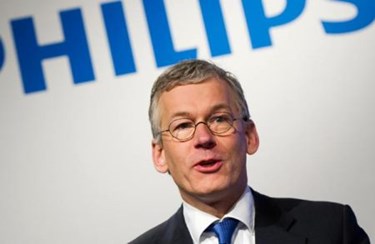Philips Looks To Israel For Innovation, Growth
By Jof Enriquez,
Follow me on Twitter @jofenriq

Dutch conglomerate Royal Philips plans to leverage its solid presence in Israel to make the country a center for innovation as the company focuses on healthcare after its planned split into two businesses in 2016.
Philips has an existing R&D center in Israel with 850 employees, including a CT division, according to the Israeli publication Globes. The company also has a medical information management division in Israel designed to facilitate continuous monitoring of a patient's treatment after hospital discharge, rounding out the continuum of care.
Israel is home to approximately 700 medical device companies and has the most medical device patents per capita in the world. The Israeli medtech market is forecast to reach $1.6 billion in 2018, up more than 40 percent from $1.1 billion in 2013.
Unlike other medtech companies, Philips has chosen not only to put up an R&D center in Israel, but also to manufacture products there.
"We're producing very special parts here for our imaging systems, and in order to produce components like this, you have to be close to R&D, and the R&D capability is here. Incentives and taxation aren't so critical. They have some effect, but that's not what determines the decision where to produce; it’s the capability," said Royal Philips president and CEO Frans van Houten in an interview with Globes.
Philips says its network of partner hospitals in Israel could help strengthen its imaging business. In the future, the company plans to extend its expertise in hospital-based information systems to home-based care, and Israel-developed technologies will allow Philips to make products that allow remote assessment and self-monitoring by patients.
In addition, Philips wants to assist early-stage Israeli medtech companies in partnering with hospitals to conduct trials.
"The search for the spirit of innovation led us to increase our activity in Israel by 60 percent in three years," van Houten told Globes. "We have important relationships with hospitals in Israel, with almost all the major hospitals, and with Assuta. Three years ago, I visited here as part of my job as CEO, and I was excited about what Israel had to offer. I knew then, following the meeting with the Chief Scientist, that I wanted to build a platform of initial investments in Israel."
This platform, called Sanara Ventures, is a medtech incubator established by Teva Pharmaceuticals and Philips Healthcare, in collaboration with The Office of the Chief Scientist of the Israeli Ministry of the Economy. Sanara started operations in March in the Ra’anana high-tech industrial park. Teva and Philips will invest a combined NIS $100 million into the 50-50 joint venture over the next eight years.
Sanara will support early stage health technology and medical device companies in Israel in the fields of digital health, disease management, monitoring and sensing, image-guided minimally invasive therapy, drug delivery and drug/device combinations, according to a press release. Over the past six months, it has evaluated more than 250 companies, and as of July, has chosen two: Kaleidoscope Medical and MGD. Kaleidoscope is developing a dynamic, real-time system for x-ray radiation shielding during catheterization procedures. MGD, on the other hand, is developing a low-cost, portable device for measuring lung residual volumes (RV) at higher frequency in patients with chronic obstructive pulmonary disease (COPD).
“Over the past years the venturing community in Israel has brought breakthrough innovations to the market. We see Sanara Ventures as a strategic way for Philips to tap into new developments in the health technology industry and we are excited to be part of this joint venture with Teva,” van Houten said in the release.
